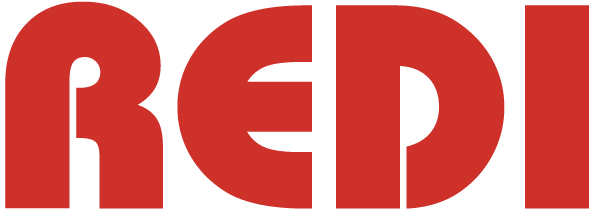Linda & Chuck's Story: Part I
Linda caught Chuck’s eye on the first day of college, back in 1997.
“I thought, ‘There’s the girl for me,’” Chuck says, “but I didn’t ask her out until February. We went out on a date to the Tigers game together.”
They were both in Medicine Hat College’s transitional vocational training program. When they finished, Linda started getting support from REDIworks to help her find meaningful employment. At first, she started in the fast-food industry, dishwashing. “I enjoyed that,” she says, “but then it started to get boring.”
REDIworks staff helped her find the kind of work that was right for her. “At first, it was a lot of paperwork, questions being asked, like who your friends are, your likes and dislikes, that kind of thing,” she says. “I didn’t necessarily understand why they were asking at the time, but now I understand. They ask to get to know you better.”
The search for the right position when Linda was told about a job opening at the Veiner Centre. She told her support staff she was interested. They worked together to prepare for the interview and Brenda, one of REDI’s job developers, went with her when it was time to meet her potential employer. “It was scary at first, but it was good knowing Brenda was there.”
Linda has worked at the Veiner Centre for five years now. “I work in the dining room, cleaning off tables and helping get the meals ready for the next day,” she says. “I like that they treat me with respect, like everyone else. They include me in the training we can do. I did Food-Safe through them, I did an orientation with them, and now I’m working on doing my WHMIS at work. At my other jobs I felt like they knew that I had a disability, so they treated me differently. [At the Veiner Centre] they try to put my interests first. What I’m into, they try to get me to do that. The way they treat me is like how we talk about wanting to be treated at TAG.”
Linda and Chuck are both involved with TAG (The Action Group). Linda is the group’s Chair, and Chuck serves on the board for the South Region Self-Advocacy Network (SRSAN), the network that connects TAG to similar groups in southern Alberta. Linda started coming to the group’s meetings when it began, but she wasn’t completely invested. “I was involved off and on, not like I am now.” Linda got more involved a few years ago, when she says TAG started to change for the better. “There’s been a lot of different allies [REDI staff who help facilitate the group], but now the allies know what TAG is supposed to be,” she says. “When it was new, it was like, “What do we do?” Now it’s not like no one knows what’s going on.”
Linda says the new allies helped organize TAG more effectively. “We made a write-up of what TAG was, and what the allies’ roles were,” she says. “They helped us follow our guidelines more, and there’s more people that are understanding what TAG is now. It’s [for] helping ourselves and other people stick up for what they believe in... that we should all be treated equally and that no one should be treated in a way that is different than other people.”
